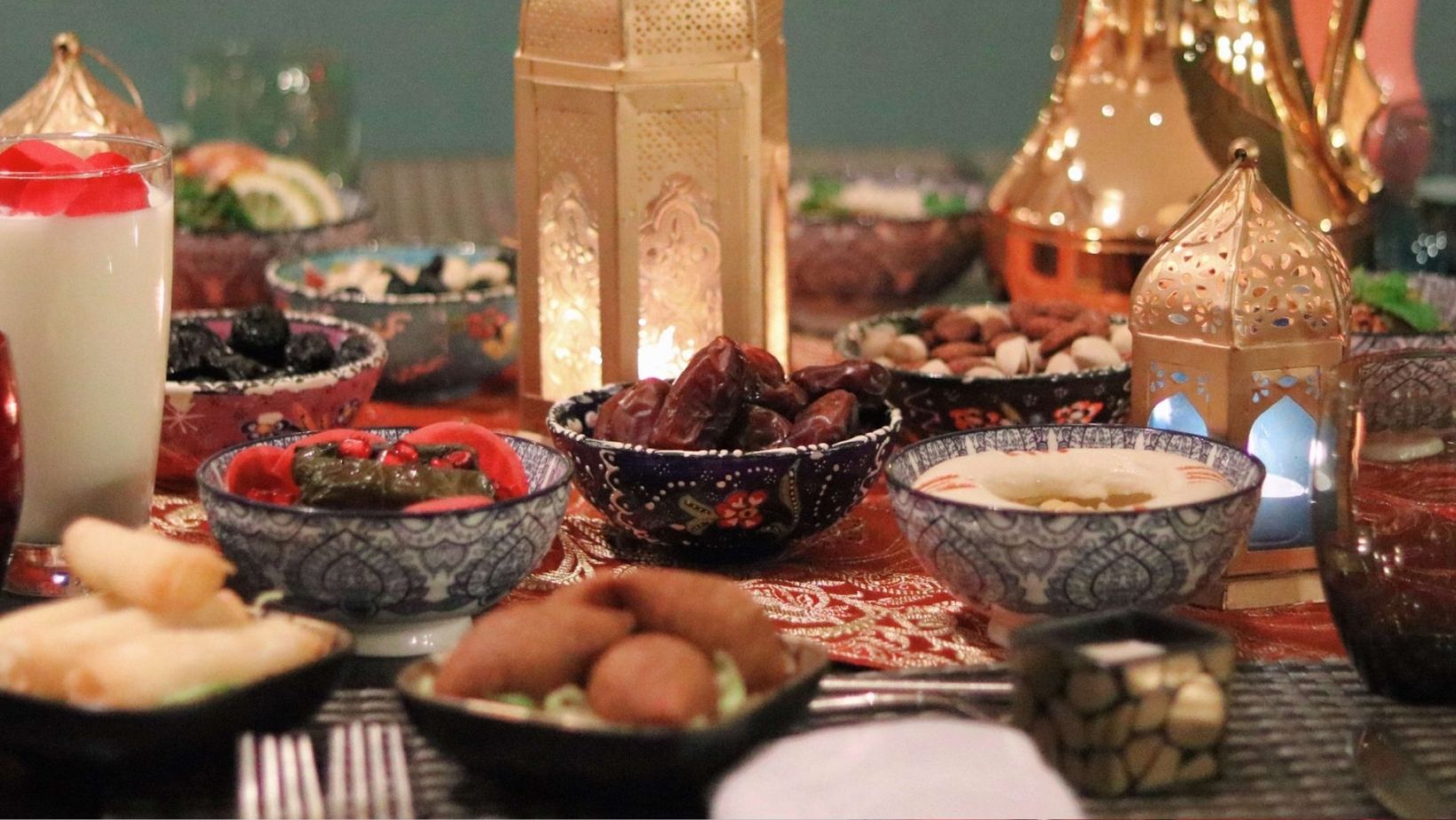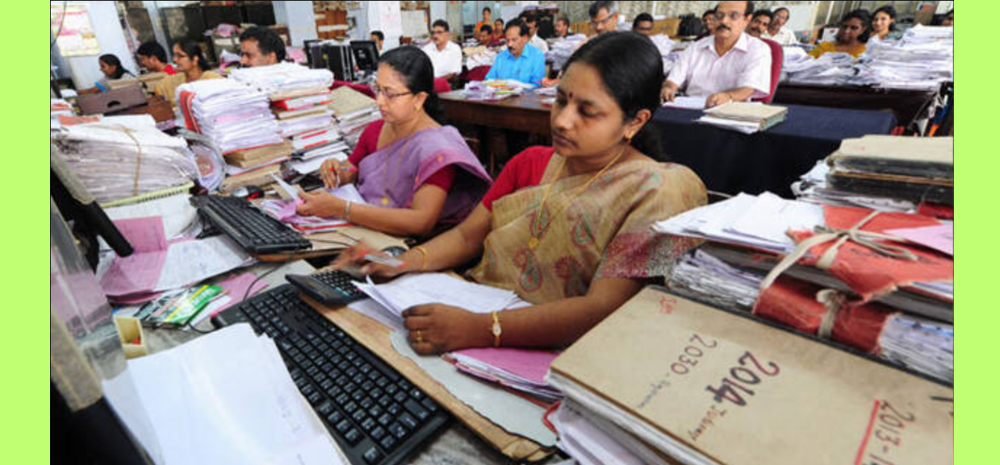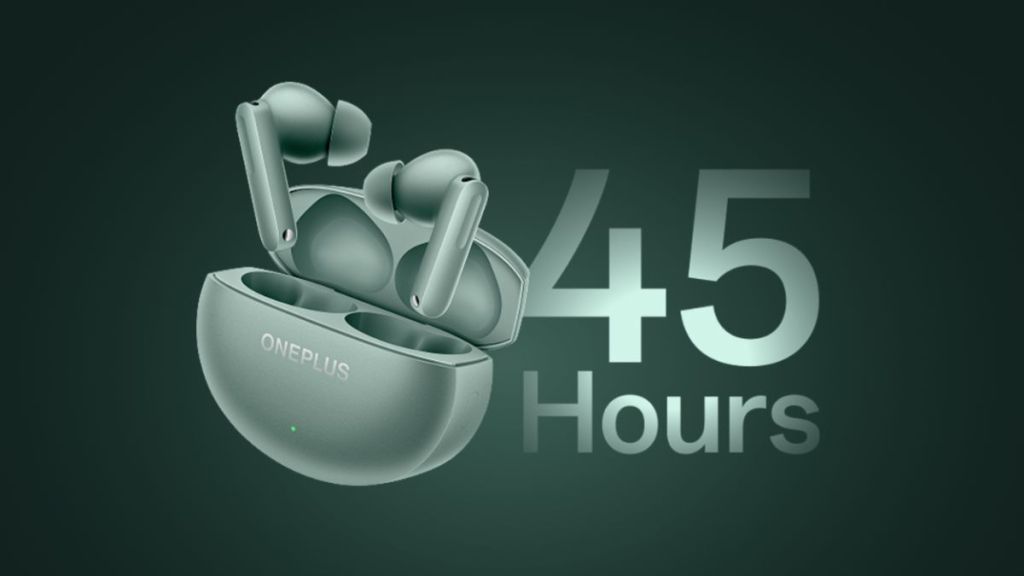What to Eat During Ramadan: Ramadan is more than just a month of fasting; it’s a time of reflection, self-discipline, and deep spiritual connection. For millions of Muslims around the world, it’s a time to strengthen faith, practice patience, and embrace gratitude. But with long hours of fasting, your body also needs the right nourishment to keep you energized, focused, and healthy.
If you’ve ever felt drained or sluggish during Ramadan, chances are your diet is playing a big role. What you eat before and after fasting can make all the difference. Choosing the right foods can keep your energy levels stable, prevent dehydration, and help you truly enjoy the blessings of this holy month.
So, what should you eat to stay strong, and what should you avoid? Let’s dive into the ultimate Ramadan nutrition guide—one that not only fuels your body but also enhances your spiritual journey.
Sehri: The Meal That Prepares You for the Day
Imagine waking up before dawn, still half-asleep, and trying to decide what to eat. It’s tempting to grab something quick, or worse, skip sehri altogether. But skipping sehri can lead to fatigue, headaches, and difficulty concentrating throughout the day.
Your pre-dawn meal should be packed with nutrients that keep you full and energized for as long as possible. That means focusing on slow-digesting foods, hydrating ingredients, and essential proteins.
What to Eat for Sehri
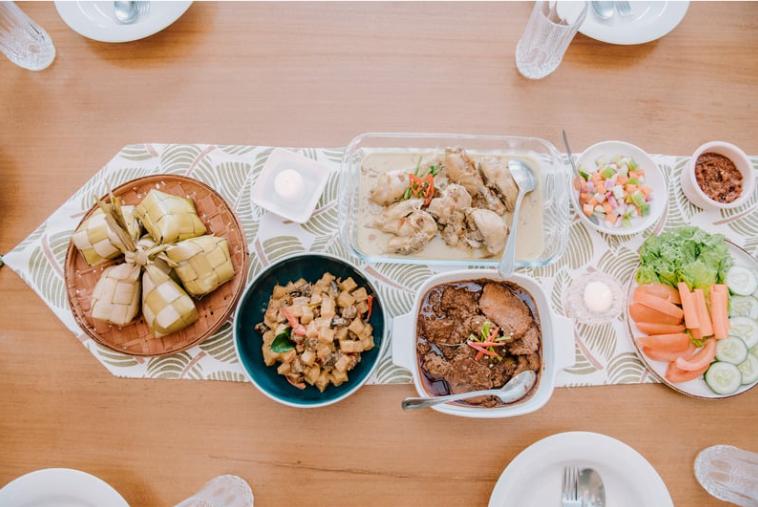
- Complex Carbohydrates – Whole grains like oatmeal, whole wheat bread, and brown rice provide slow-releasing energy. Unlike sugary cereals or white bread, these carbs don’t spike your blood sugar and crash later.
- Protein-Packed Foods – Eggs, Greek yogurt, cheese, nuts, and beans help keep you full longer and prevent muscle loss during fasting.
- Healthy Fats – Avocados, nuts, seeds, and olive oil are excellent sources of long-lasting energy.
- Fruits and Vegetables – Bananas, apples, cucumbers, and leafy greens are rich in fiber and water, helping you stay hydrated.
- Plenty of Water – Dehydration is one of the biggest challenges of fasting, so drink at least two to three glasses of water before sehri.
What to Avoid at Sehri
- Salty and Processed Foods – Chips, pickles, and processed meats increase thirst and make fasting harder.
- Sugary Foods – Pastries, sweetened cereals, and candy may give you a quick energy boost but lead to crashes later.
- Caffeinated Drinks – Tea and coffee may seem like a good idea, but they dehydrate you and make you thirstier during the day.
If you plan your sehri wisely, you’ll find it much easier to stay energized and focused during the long fasting hours.
Iftar: Breaking Your Fast the Right Way
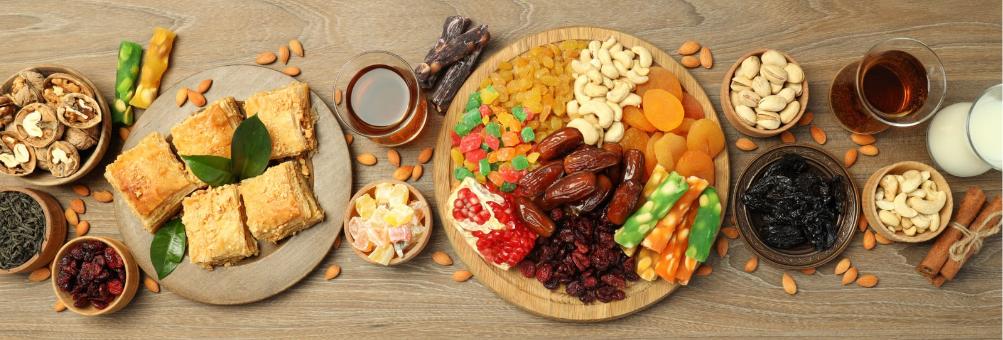
The moment you hear the call to Maghrib prayer, your body is ready for nourishment. But after a full day of fasting, how you break your fast is crucial. Eating too much, too quickly, or choosing the wrong foods can lead to bloating, fatigue, and sluggishness.
The Best Way to Break Your Fast
- Start with Dates and Water – This is the traditional and healthiest way to break your fast. Dates provide a quick energy boost, and water replenishes lost fluids.
- Begin with a Light Starter – A small bowl of soup, a fruit salad, or a few nuts can prepare your stomach for a full meal.
- Gradually Move to a Balanced Meal – Once your stomach has adjusted, it’s time for a well-rounded meal with lean protein, healthy carbs, and plenty of vegetables.
What to Eat for a Healthy Iftar
- Protein Sources – Chicken, fish, lean beef, lentils, and chickpeas provide essential nutrients and keep you full.
- Healthy Carbs – Brown rice, quinoa, whole wheat bread, and baked potatoes offer energy without causing blood sugar spikes.
- Vegetables – A mix of raw and cooked vegetables ensures fiber intake, good digestion, and a strong immune system.
- Healthy Fats – Olive oil, nuts, and avocados can be added to meals to boost heart health and energy.
What to Avoid at Iftar
- Fried and Greasy Foods – Samosas, deep-fried snacks, and oily curries may taste good but can cause bloating and discomfort.
- Sugary Drinks – Sodas and artificial juices lead to sugar crashes and dehydration. Stick to water, herbal teas, or fresh fruit juices.
- Overeating – After a long fast, your body needs time to adjust. Eating too much too fast can cause indigestion and fatigue.
If you eat mindfully and listen to your body’s signals, you’ll feel satisfied without feeling sluggish.
Hydration: The Key to Feeling Your Best
Fasting for long hours can leave you dehydrated, especially during hot weather. If you’re not drinking enough fluids between iftar and sehri, you may experience headaches, dizziness, or extreme fatigue the next day.
Tips for Staying Hydrated During Ramadan
- Drink Water Consistently – Aim for 8-10 glasses of water between iftar and sehri.
- Eat Hydrating Foods – Cucumbers, watermelon, oranges, and yogurt help maintain hydration levels.
- Avoid Caffeinated Drinks – Coffee, tea, and soda can make dehydration worse.
A well-hydrated body helps you stay focused and energized throughout your fast.
The Emotional and Spiritual Side of Eating in Ramadan
Ramadan is not just about avoiding food—it’s about self-control, gratitude, and spiritual renewal. When you choose healthy, nourishing foods, you’re not just feeding your body; you’re respecting the incredible gift of health that Allah has given you.
Mindful Eating: A Lesson from Ramadan
Think about this—every bite you take at iftar is a blessing. The simple act of drinking water after hours of fasting feels like a gift. Ramadan teaches us to slow down, appreciate food, and be mindful of what we consume.
- Gratitude – Fasting reminds us of those who don’t have enough to eat. When we break our fast, we should be grateful and share with those in need.
- Self-Control – Overeating can take away the true purpose of Ramadan. Eating in moderation helps us develop discipline and patience.
- Connection – Meals during Ramadan are special. Whether it’s sehri with family or iftar with friends, these moments bring people closer.
If we apply these lessons beyond Ramadan, we can develop healthier eating habits all year long.
Final Thoughts: Eat to Nourish, Not Just to Fill
What you eat during Ramadan has a direct impact on how you feel—physically, mentally, and spiritually. If you choose foods that nourish your body, you’ll have the energy to fully embrace the month’s blessings. If you eat mindlessly, you may struggle with fatigue, dehydration, and sluggishness.
As you go through Ramadan, ask yourself: Is this food giving me strength, or is it draining my energy? Am I eating for nourishment, or just out of habit?
Your body is a trust from Allah. Take care of it. Choose foods that fuel your fast and uplift your spirit.
What are your favorite Ramadan meals? Share your thoughts and experiences in the comments!
